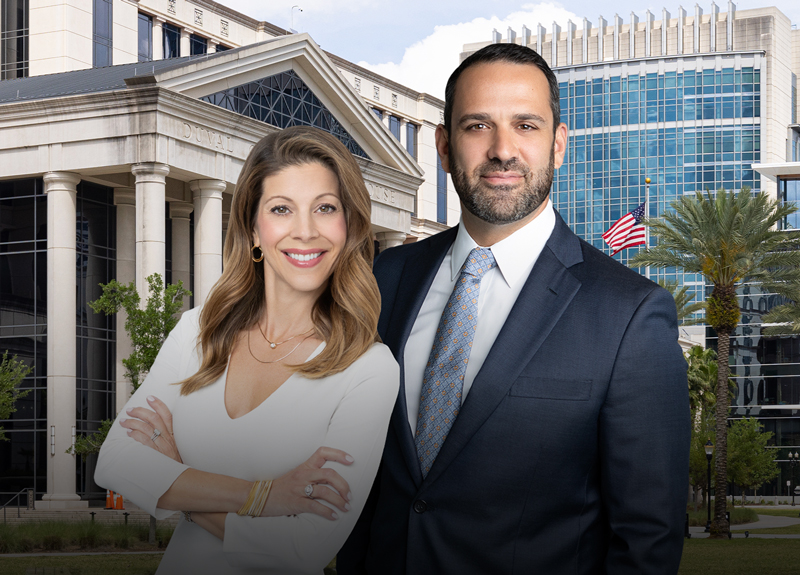Breaking Down Attorney-Client Privilege: What It Means and How It Can Affect Your Case

Attorney-client privilege keeps almost all of your communications with your attorney a secret from those who would use it against you. It’s not just that your lawyer can face punishment for revealing your secrets, although they can.
The strongest protection that attorney-client privilege offers is that it cannot be used as evidence against you even if your lawyer does reveal it.
What Is the Purpose of Attorney-Client Privilege?
Attorney-client privilege binds your attorney from testifying about any oral or written communication between you and them.
Even if they are on the witness stand under oath, they can refuse to answer a question if doing so would violate attorney-client privilege.
Contrast: Your Lawyer’s General Duty of Confidentiality
Attorney-client privilege is a rule of evidence that prevents your attorney from testifying against you. Your attorney has another duty, known as the duty of confidentiality, that is broader than attorney-client privilege.
Under the duty of confidentiality, your lawyer cannot disclose relevant case facts with anyone without your permission, regardless of whether the disclosure constitutes actual testimony.
Situations That Trigger Attorney-Client Privilege
Attorney-client privilege arises under the following circumstances:
- The attorney must be acting in their professional capacity. Asking for legal advice from a drunken lawyer at a bar will not necessarily trigger attorney-client privilege.
- You must intend for the communication with the lawyer to be a secret.
- You subsequently act in a manner that suggests you intend to keep the information secret. You don’t go around telling people about it, for example.
- A potential client speaks with a lawyer seeking legal advice. This might happen in a free initial consultation, for example. Be careful because confidentiality under these circumstances (you are not yet a client) is sometimes controversial.
All of these elements, except the last one, must be present for attorney-client privilege to apply.
What Rights Does Attorney-Client Privilege Give You?
The attorney-client privilege prevents the disclosure of information that you have shared with your attorney about your case. This privilege gives rise to various rights, such as:
- Your attorney is not allowed to divulge any communications between you and them, except with your permission.
- Even if your attorney does divulge this information, no one can use it against you. Suppose, for example, that your attorney shared sensitive information about your case with the opposing party (let’s say you admitted to drinking alcohol the night of a truck accident). The opposing party could not use that information against you.
- Your lawyer cannot share with others any information about your case that they have learned from third parties.
Your attorney may discuss your slip and fall case with members of their own law firm unless you forbid it. This is known as implied permission.
Penalties for Violating Attorney-Client Privilege
Attorney-client privilege is one of the major ethical pillars of the Florida Rules of Professional Conduct. If your attorney violates your confidentiality, they will face professional discipline with the possible penalty of disbarment.
Limitations on Attorney-Client Privilege
The attorney-client privilege is not absolute. Below are descriptions of some of the most common exceptions.
Crime or Fraud
Suppose you tell your lawyer, “I’m going to kill John Doe tomorrow to settle an old score,” or “I am going to bribe juror Mary Roe $10,000 to vote in my favor.” Your lawyer can safely report the threat without worrying about violating attorney-client privilege.
Death of the Client
When a client dies, some secrets go to the grave with them. Certain kinds of information, however, must be revealed if a probate dispute arises. Lawyers for deceased clients enjoy a limited authority to divulge information that would otherwise be protected by attorney-client privilege.
Joint Legal Representation
Sometimes a lawyer will represent two or more parties. When this happens, none of these parties can invoke attorney-client privilege against the other party.
Physical Evidence
You cannot conceal a photograph, a gun, a stolen item, a DNA test, etc., by giving it to your lawyer. If your lawyer knows it is evidence, their legal duty is to turn it in to the appropriate party.
Public Settings
Privileged attorney-client information is protected, but it must be shared privately. The privilege does not apply if:
- A third person was present when you spoke to your attorney, and you knew about it at the time.
- You spoke so loudly in public that a third person overheard you.
- You are incarcerated, you speak to your lawyer over a prison phone line, and you were warned that all conversations are being monitored. This is a legal gray area because courts have issued mixed rulings.
In all cases above, only a third-party “eavesdropper” can repeat whatever you said. Your lawyer is still not allowed to do so.
Waiver
The attorney-client privilege belongs only to you. This means that you can waive the privilege if you choose to. Your lawyer, however, does not have the right to waive your privilege.
Don’t Be Afraid to “Tell It Like It Is” to Your Lawyer
Don’t be afraid to tell the truth, the whole truth, and nothing but the truth to your lawyer unless one of the foregoing exceptions to attorney-client privilege applies. Being honest and open about your case to your attorney is in your best interest.
Contact the Jacksonville Personal Injury Law Firm of Baggett Law Personal Injury Lawyers Today For Help
For more information, please contact the Jacksonville and Ponte Vedra personal injury law firm of Baggett Law Personal Injury Lawyers at the nearest location to schedule a free consultation today.
We serve Duval County, St. Johns County, and its surrounding areas:
Baggett Law Personal Injury Lawyers – Jacksonville
9471 Baymeadows Rd #105,
Jacksonville, FL 32256
(904) 396-1100
Baggett Law Personal Injury Lawyers – Downtown Jacksonville
121 W Forsyth St Suite 1000,
Jacksonville, FL 32202
(904) 822-4225
Baggett Law Personal Injury Lawyers – Ponte Vedra
480 Town Plaza Ave #130,
Ponte Vedra Beach, FL 32081
(904) 675-1167

